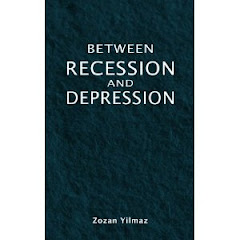This week we saw an interesting request from Goldman Sachs to pay back the $10billion government bail out money received through Troubled Asset Relief Program (TARP). Follower JP Morgan Chase announced it has enough money to pay back $25billion bailout funds. Both announced good profit figures to strengthen their requests.
At a time when government is about to announce the results of stress tests for the top nineteen US banks and conclude whether there is need for further capital injections from $700bn TARP, it is a question mark whether Goldman Sachs & JP Morgan Chase’s timing are good. What might be the motivation behind the new competition trend?
Top Wall Street banks seem to be concerned about being rescued by government funds and restricted in all activities taken including executives’ bonuses, and preference shareholders’ dividends. The possible motivations can be summarized as:
1) Saving the reputation;
2) Getting back the independence of bonus, dividend paying;
3) Attracting clients through the message of “look, I am still the best, paying back the bailout funds first”
4) Diverting public anger.
The stakeholders’ reaction to the new trend is not clear yet:
Markets digested the news positively today as JP Morgan Chase’s share price increased by 3.65 per cent; Goldman Sachs’s followed it by 0.72 per cent increase.
Government is the most cautious side with focus on the stress test results and determined not to add further to damaged confidence.
Clients will be watching carefully after losing billions of dollars in investments.
Executives and preference shareholders will be the most eager side as pressures on bonuses and dividends will be released.
Ordinary shareholders might take it as an increase in risk and therefore increase cost of capital.
Will these efforts help lowering the new shock caused by Chapter 11 bankruptcy protection sought by General Growth today? The biggest real estate failure with $29.26billion of assets and $27.29billion of debt.
We will find out soon.
My nephew

My niece

My book

Search This Blog
Scribnia Ranking
Blog Archive
- May (2)
- March (1)
- February (1)
- January (21)
- December (27)
- November (13)
- October (2)
- August (10)
- July (5)
- June (4)
- May (2)
- April (6)
- March (5)
- February (4)
- January (10)
- November (2)
- September (6)
- August (4)
- July (2)
- June (10)
- May (2)
- March (1)
- January (1)
- December (1)
- November (1)
- September (1)
- August (1)
- May (1)
- April (1)
- March (3)
- February (2)
- January (4)
- December (10)
- November (2)
- October (1)
- September (1)
- June (1)
- April (5)
- March (3)
